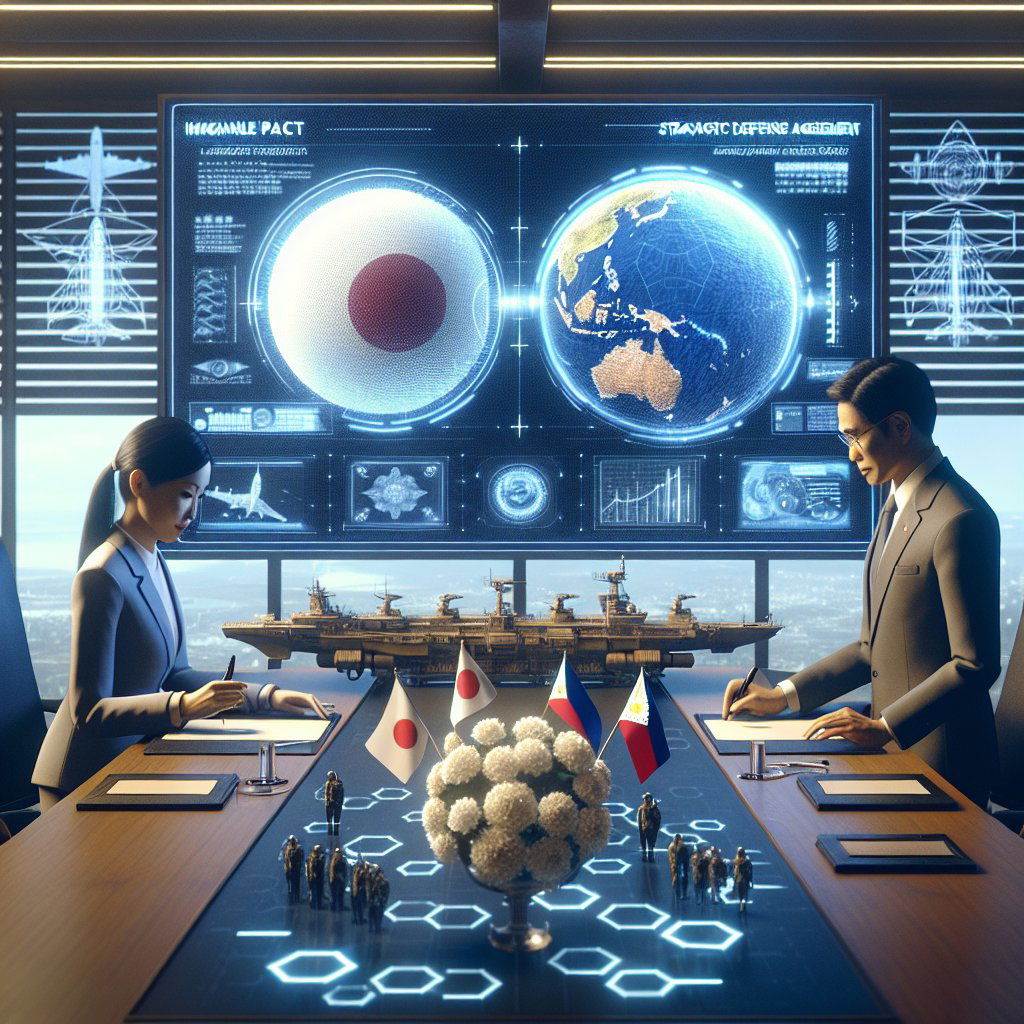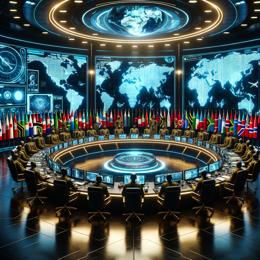Image created by AI
Philippines and Japan Cement Defense Ties with New Pact Amidst Tensions Over China
In a pivotal move to strengthen their military ties, Japan and the Philippines formally signed a Reciprocal Access Agreement, intensifying their defense strategies in the face of China’s escalating military presence. The signing ceremony in Manila signified a historic cooperation between the two nations, enabling mutual troop deployments for joint exercises, marking a significant shift in their regional defense postures.
Japanese Minister of Foreign Affairs Yoko Kamikawa and Philippine Secretary of National Defense Gilberto Teodoro, the respective signatories, emphasized the necessity of the pact considering the rise in regional tensions. With both Japan and the Philippines being traditional allies of the United States, this agreement deepens their strategic partnership, aligning them closer in defense collaborations.
Despite the fanfare, the treaty awaits ratification by both Japan and the Philippines' legislatures before officially coming into force. This legal process is not a mere formality but a part of the democratic oversight that defines both countries' commitment to responsible governance in matters of defense and foreign policy.
Tensions in the South China Sea have escalated over the years, with China’s far-reaching maritime claims clashing with those of surrounding Southeast Asian nations, including the Philippines. The contentious issue has seen numerous skirmish-like encounters, highlighting the area's volatility and the need for diplomatic and military readiness by the involved parties.
China’s expansive territorial claims, widely refuted by an international tribunal ruling, underscores the gravity of such a defense pact between the Philippines and Japan. Both nations have experienced direct confrontations with Chinese forces, notably in the South China Seas, and Japan's disputes over the Senkaku Islands add further justification for mutual defense agreements.
Japan's approach under Prime Minister Fumio Kishida involves scaling up its military capabilities as a deterrence strategy. This involves fostering defense agreements not only with ASEAN countries but with other global powers including Australia and the UK, illustrating Tokyo's broader vision for a more robust global posture.
On the Philippine front, President Ferdinand Marcos Jr has taken an unequivocally assertive stance against unwanted Chinese encroachments in his country's waters. The new agreement fits within Manila's broader strategic framework, which already includes defense pacts with other nations and seeks to add to this network in order to safeguard sovereignty and maintain regional stability.
Furthermore, the inaugural US-Japan-Philippines trilateral summit mirrored the trio's dedication to elevating military ties, and the forthcoming military drills in the disputed territories denote a crescendo of cooperative militaristic flexing aimed at ensuring peace through strength.
With the ink now dry on the Reciprocal Access Agreement, the path is set for a more fortified alliance between Japan and the Philippines; a tandem that is set to become pivotal in the power dynamics of the Indo-Pacific region.










